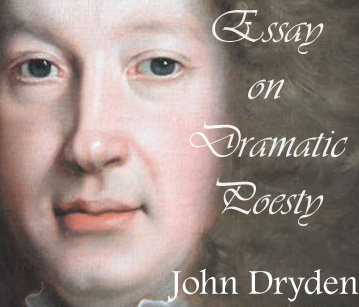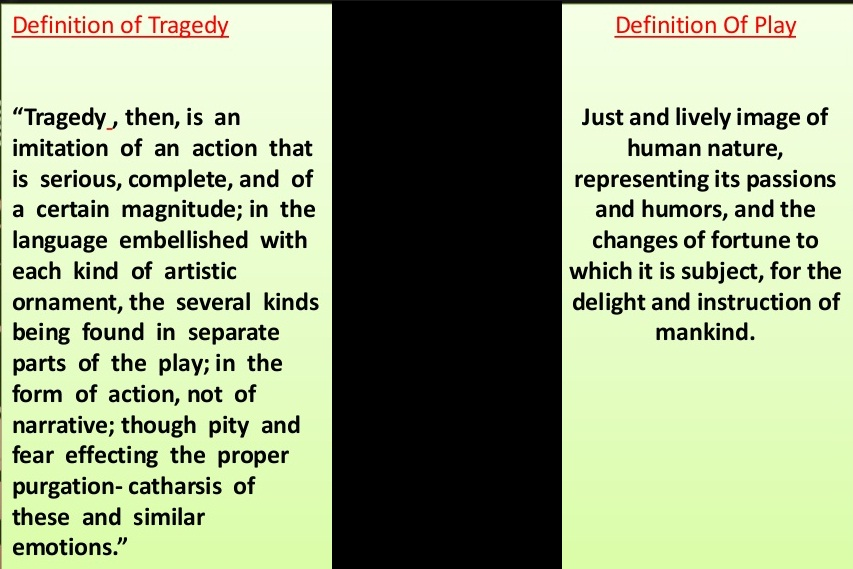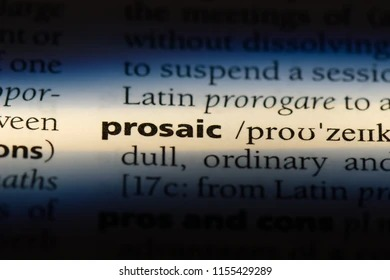Bridge course:- Thinking activity
Dryden- On Dramatic Poesy
Hello Readers, in this Bridge course Thinking activity Blog I am writing down here about my understanding of the Dryden-on Dramatic essay and I am also giving the answer to some questions, Which is given by Dr. Dilip Barad sir, Department of English Maharaja Krishnakumarsinhji Bhavnagar University
1) Do you any difference between Aristotle's definition of Tragedy and Dryden's definition of Play?
Difference Between Aristotle's Tragedy and Dryden's Play:
Definition of Tragedy Aristotle:-
"Tragedy, then, is an imitation of an action that is serious, complete, and of a certain magnitude; in language embellished with each kind of artistic ornament, the several kinds being found in separate parts of the play; in the form of action, not of narrative; through pity and fear effecting the proper purgation of these emotions.
Aristotle begins to introduce the six constitutive components of a tragedy. The first in the discussion is a spectacle, which includes the costuming of the actors, the scenery, and all other aspects that contribute to the visual experience of the play. The play is dependent on action. It has speeches, dialogue, and soliloquies. In Aristotle’s tragedy, pity and fear are more important. At last, comes, catharsis. The emotions become free from the body.
"A well constructed plot should, therefore, be single in its issue, rather than double as some maintain."
Aristotle describes the components parts or characteristics which are required to make a tragedy. The second constituent of tragedy is character. According to Aristotle, there are five things to be aimed at in a character.
1) The Spectacle (opsis)
2) Melody/songs (Melos)
3) Diction (lexis)
4) Character (othes)
5) Thought (dianoia)
According to Aristotle tragedy should be presented in the form of action, not narration. He distinguishes tragedy from the epic because an epic narrates the events and does not represent them through action. Aristotle every tragedy has six constituents, which determine its quality. They are character, plot, diction, thought, spectacle, and song. Plot, character, and thought are the objects of imitation, diction, and song are the media of imitation, and spectacle and song are the manners of imitation in tragedy.
Introduction of John Dryden:-
“I am sore wounded but not slain I will lay me down and bleed a whileAnd then rise up to fight again”―
John Dryden (1631-1700) was a prominent English poet, critic, translator, and playwright. He was a neo-classical poet and his age come after the Elizabeth age. Dryden was the father of English literature, who dominated the literary life of the Restoration age. Dryden's mature thought of literary criticism on ancient, modern, and English literature, especially on drama is presented in dialogues from “An Essay on Dramatic poesy”. His some works here I note down – The wild Gallant, The Indian Queen, The Tempest, All for love, An Evening's Love, Sir Martin Mar-all, The Assignation, Limberham, or the King Keeper.
“Happy the man, and happy he alone, He who can call today his own: He who, secure within, can say, Tomorrow do thy worst, for I have lived today.”
He defends the classical theory of drama saying that it is an imitation of life and reflects human nature clearly.
His definition of the play :
"A play ought to be a just and lively image of human nature, representing its passion and humours, and the change of fortune to which it is subject, for the delight and instruction of mankind".
Throughout, 'The Essay of Dramatic poesy' Dryden treats drama as a form of imagination literature and hence his remarks on drama apply to poetry as well.
Dryden's one quote related to word delight his view on delight word here I write
this quote:
"Criticism, as it was first instituted by Aristotle, was meant as a standard of judging well; the chiefest part of which is to observe those excellencies which delight a reasonable reader".
Comparing the Definitions:-
Although Dryden is taking an influence from Aristotle’s definition of tragedy and makes his own. How he carried over the tradition. Dryden used the words ‘Just
and Lively’ image, which means real life. When real life is presented in play one must to be involved in the play then. The catharsis comes which is the last part of Aristotle’s definition of tragedy.
In Aristotle’s definition the line, 'Tragedy, then is an imitation of an action. Which says that tragedy is an imitation not an actual so it is copied. Where there in Dryden’s definition. The line says 'just and lively image' here 'just' means exact. As it is real so the image is in mind but the way matters how you use to give it a form of visual to others. So it becomes the natural way.
Aristotle's definition of tragedy has three parts. First is a lovely image of human nature, and second is it represents passions and humor and changes in the future. And third is its purpose which gives delight and instructions to mankind. Aristotle's tragedy ends with Catharsis whereas Dryden’s play ends with delight and instruction. I can see other differences between Aristotle's and Dryden’s definition that tragedy has sadness end whereas play has a pleasure and delightness end. Tragedy creates seriousness whereas play represents humour.
Comparing Characteristics:-
The most important characteristics Unities of time place and action. Aristotle supports these three unities in his tragedy but Dryden breaks these unities. He says the life is reality and when in play we are depicting the reality of life so there are no unity. the life is free itself. So while describing the liveliness of life we are supposed to depict life and its incidents as it is.
Conclusion:-
The aim of both definition is to delight the readers. Aristotle firmly follow the tradition of tragedy where as Dryden has his own rules of play.
2 ) What would be your preference so far as poetic or prosaic dialogues are concerned in the play?
I think both are equally important in the play. But I Prefer Prosaic dialogues rather than poetic in the play. Prosaic dialogue helps in understanding the play easily but the poetic dialogue is like sugar coated words which adds sweetness to the play.
Some people think that prosaic is Dialogues are unromantic for reading and also it is boring for reading.
But I believe that Prosaic is better than poetic because we understand it very easily.
Thank You..






No comments:
Post a Comment